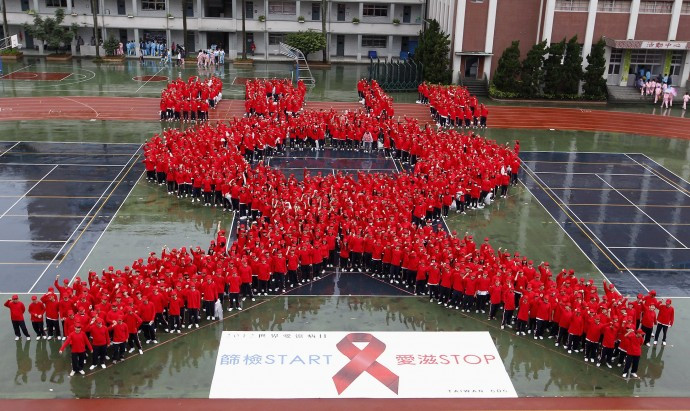First large-scale HIV vaccine trial in seven years to start in South Africa
Over three years, scientists will test the safety and efficacy of a vaccine regimen to prevent HIV.

A large clinical trial to test the safety and efficacy of an HIV vaccine is about to begin in South Africa. The study, known as HVTN 702, will last until 2020 and will assess whether the vaccine regimen can protect a group of healthy adults at risk of getting infected.
The experimental vaccine regimen that will be tested is based on one that showed promising results in a landmark 2009 study – the Military HIV Research Program-led RV144 clinical trial in Thailand. The only difference is that the regimen has been slightly modified to match the HIV sub-type that is prevalent in South Africa.
In the 2009 study, the vaccine regimen appeared to be 60% effective one year after vaccination at preventing HIV infection, and 31% effective after 3.5 years.
Recent pre-clinical tests – known under the name 'HVTN 100 study' – have shown similar levels of effectiveness and safety, and the vaccine was well tolerated by participants. Scientists are thus hopeful that the HVTN 702 study will yield positive results as well.
Vaccine or placebo
From November 2016 to December 2020, around 5,400 healthy South African men and women aged 18 to 35 years will participate in HVTN 702. These participants will be selected based on the fact they are particularly at risk of HIV infection – because a partner is HIV positive for example. They will either be given a placebo or the HIV vaccine regimen, in five injections over one year.
What's inside the vaccine regimen?
Two experimental vaccines constitute this vaccine regimen. These are a canarypox-based vaccine called ALVAC-HIV and a bivalent gp120 protein subunit vaccine combined with an adjuvant to enhance the body's immune response.
Both have been modified be target specifically the HIV subtype C, which dominates in southern Africa.
In addition, they will receive counselling on how to reduce risky behaviours as well information about medical male circumcision which in some studies has been shown to reduce the probability of getting infected.
They will also be given condoms and lubricant and will be referred to local programs to receive pre-exposure prophylaxis (PrEP) – HIV drugs given as prevention.
If participants get infected over the course of the study, they will benefit from referrals to receive care and treatment. They will also receive information on how to reduce their risk of transmitting the virus and will be followed as part of the HVTN 702 trial for six months after confirmation of their diagnosis.
The study is conducted by NIAID-funded HIV Vaccine Trials Network (HVTN). Anthony S Fauci, director of NIAID commented: "For the first time in seven years, the scientific community is embarking on a large-scale clinical trial of an HIV vaccine, the product of years of study and experimentation. A safe and effective HIV vaccine could help bring about a durable end to the HIV/AIDS pandemic and is particularly needed in southern Africa, where HIV is more pervasive than anywhere else in the world."
© Copyright IBTimes 2025. All rights reserved.





















